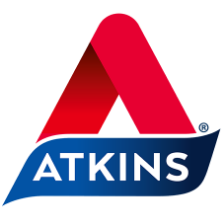- Home►Get inspired►Articles►High Protein Diets
High Protein Diets


Scroll directly down to

High protein diets used to be the preserve of body-builders intent on building muscle while losing fat but have become more commonplace in recent times.
Our Atkins guides like to keep people informed about all diet and weight-loss options but it’s prudent to mention that high protein diets are not the same as a low carbohydrate Atkins diet.
Instead, high protein diets take an approach of strict calorie control. And, they have also been associated with some controversy, not least with recent news reports claiming that high protein diets may be as bad as smoking. But before tackling the controversy, let’s examine the basics.
Start on Atkins today and receive support, tips and meal plans for free!
What is Protein?
Protein is one of three macronutrients – the other two being fat and carbohydrates. Its constituent parts are amino acids, commonly called the building blocks of protein. After consuming protein, they are metabolised by the body into amino acids which adhere to bone and muscle structure in the body and free flowing proteins like enzymes and hormones.
Why do we need Protein?
Protein helps keep the body functioning, with amino acids vital for growth and functioning of many things: - it helps to repair and recover damaged muscle tissue,, aids hair growth, helps organs, indeed it’s vital as an ‘engine oil’ to keep the body running effectively. The body itself manufactures some amino acids for protein production but is reliant on protein from animal or vegetable sources for many essential amino acids.
What foods contain Protein?
Many foods are sources of protein for the body, these include fish, poultry, eggs, meat, tofu, soy beans, nuts and milk.
What is a High Protein Diet?
A high protein diet makes the consumption of proteins the key component of dieting, and this involves eating above recommended required amounts: 1-2g of protein per kilo of bodyweight generally seen as the minimum required intake. Over 50% of your foods being proteins would lead to the designation of high protein diet.
Their contribution to weight loss pivots on the view that a high protein intake stops people feeling hungry and decreases their calorie intake. There are a number of popular versions of high protein diets which emphasise this consumption.
The Paleo diet in theory attempts to recreate what it claims is a natural diet for the body replicating what our human ancestors would have eaten. This means the avoidance of anything ‘modern’, such as refined carbs or grains - rice, wheat, sugar etc. and a focus on anything ‘ancient’: a surfeit of animal proteins; i.e. plenty of red meat, poultry, fish and plenty of vegetables.
The Zone diet has been popularised by many people fond of intensive work-outs. It involves getting the right ratio of carbs, protein and fats eaten as ‘blocks’ to maintain a balance of insulin and glucagon, which in theory leaves the body burning fat for fuel. You can eat anything as long as it accords to define ratios.
Controversy and High Protein Diets
In March 2014, high protein diets featured in many news stories as being potentially bad for health, with a scientist involved likening a high protein diet to smoking.
The source for these stories were two studies published in a scientific journal called Cell Metabolism.
One study was conducted on mice, one on humans, with the latter indicating high protein diets could affect overall and cancer mortality rates in respondents aged 50-65. Curiously, over 65 and the reverse seemed to be indicated, which was explained as being a by –product of the elderly being less able to absorb protein so needing more to get their intake. The study involving mice show higher mortality rates for those mice fed a high protein diet.
As with many such studies, there is no cast-iron cause and effect but merely an association that has been ascertained. Whether it will deter people from high protein diets remains to be seen.
Achieve your goals with Atkins
Rather you would like to lose weight or to feel fit, Atkins will help you to achieve your goals!
Join now
